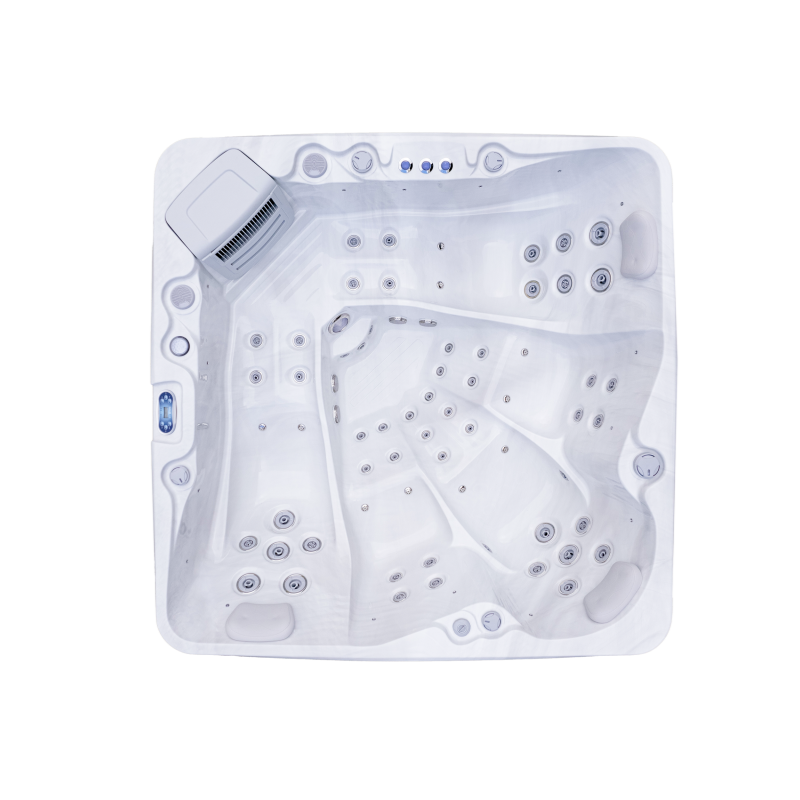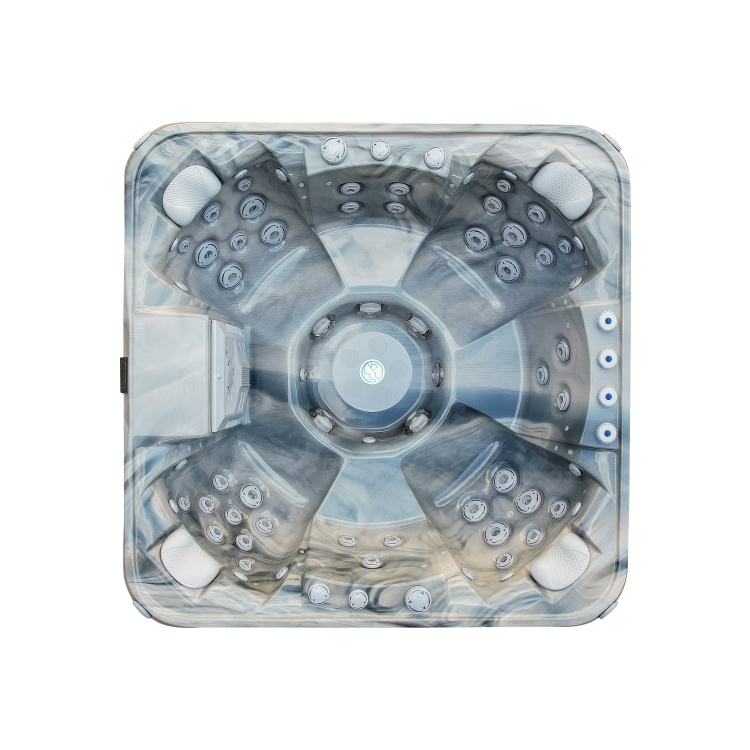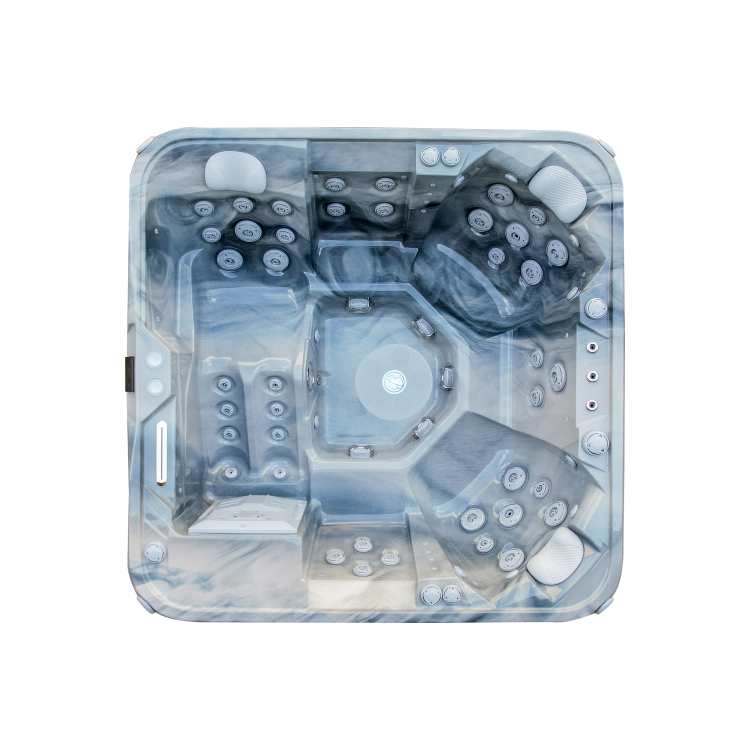In modern society, a spa jacuzzi bathtub has become a popular way to relax. Whether in a spa resort, gym, or private bathroom at home, a spa jacuzzi bathtub has won wide attention for its effects in soothing muscles, improving blood circulation, and relieving stress.
However, many people may overlook an important detail: why do you have to shower after a spa jacuzzi bathtub? On the surface, this seems to be an insignificant question, after all, the water in the spa jacuzzi bathtub has been treated and filtered, but in fact, showering after a spa bath is the key to health and hygiene.
Below, we explain in detail the importance of showering after a spa jacuzzi bathtub from multiple perspectives, including water quality, skin health, chemical effects, and microbial growth.
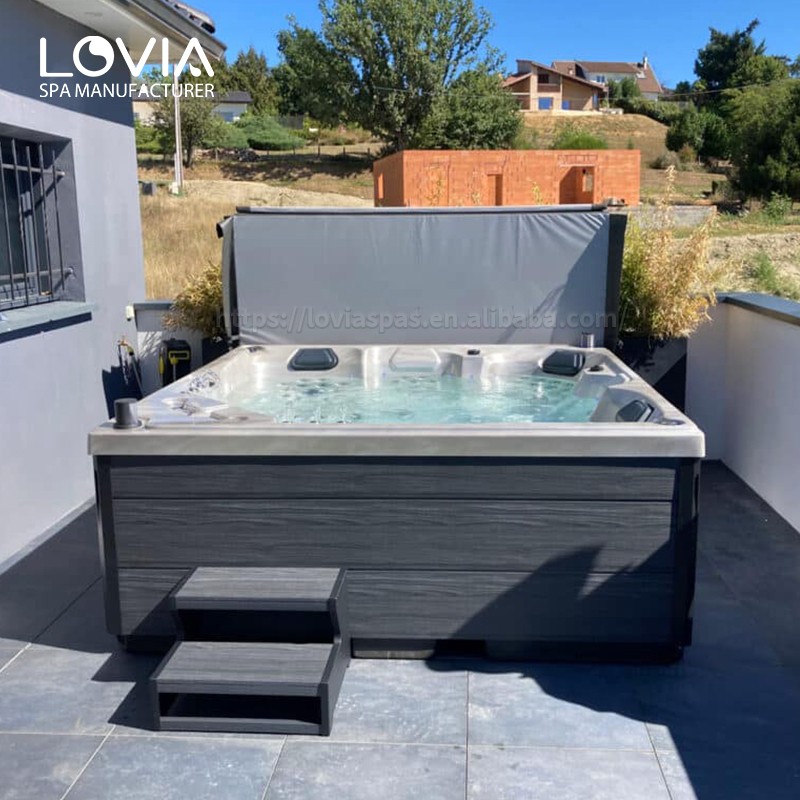
Water quality issues in spa jacuzzi bathtubs
To understand why you need to shower after a spa jacuzzi bathtub, you first need to understand the water quality management of spa jacuzzi bathtubs. Although spa jacuzzi bathtub water is often treated with disinfectants such as chlorine or bromine to inhibit the growth of bacteria and fungi, these disinfectants are not a panacea, and the chemicals and microorganisms in the water may still affect the user's health.
Spa jacuzzi bathtub water is often rich in minerals, especially in natural hot springs. Although these minerals have certain benefits to the body, they may cause clogged pores and even skin discomfort when left on the surface of the skin. In addition, although the concentration of chemical disinfectants in the water is not high, it may still irritate the skin of some people, especially after soaking for a long time.
Although the water circulation and filtration system in the spa jacuzzi bathtub effectively removes most impurities, it still cannot completely eliminate all microorganisms in the water. Organic matter in the water (such as human sweat, sebum, and dead skin cells) can breed bacteria and microorganisms, causing the water quality to deteriorate. If you do not shower after soaking in the spa jacuzzi bathtub, these residual substances on your body will remain on your skin for a long time, which may increase the risk of infection.
Effects of chemical disinfectants on the skin
The water in the spa jacuzzi bathtub usually relies on chemical disinfectants to keep it clean and safe. Common disinfectants include chlorine, bromine and ozone. Chlorine and bromine can effectively kill bacteria and viruses, reduce the number of microorganisms in water, and thus protect the health of users. However, the residues of these chemicals in water will not only react with impurities in the water to produce byproducts, but may also have certain effects on human skin.
1. Residual substances of chlorine:
As a widely used disinfectant, chlorine is well known for its effectiveness. However, chlorine reacts with organic substances in water to produce byproducts such as chloramines. Chloramines are not only irritating to the skin, but may also cause dryness and itching of the skin, especially for people with sensitive skin, who are more likely to have allergic reactions. If you do not shower after taking a spa jacuzzi bathtub, the residues of chlorine will continue to stay on the surface of the skin, increasing the irritation to the skin.
2. Reaction products of bromine:
As a substitute for chlorine, bromine is also widely used in the disinfection of spa jacuzzi bathtubs. Although its smell is not as pungent as chlorine, the reaction products of bromine with organic substances in water (such as bromine) may also have adverse effects on human skin and respiratory tract. Long-term contact with bromine residues can dry the skin and even cause respiratory discomfort.
Therefore, taking a shower in time after soaking in the spa jacuzzi bathtub can not only effectively remove the residual chemical disinfectant and avoid irritation of the skin and respiratory system, but also clean the impurities on the skin and reduce the possibility of discomfort.
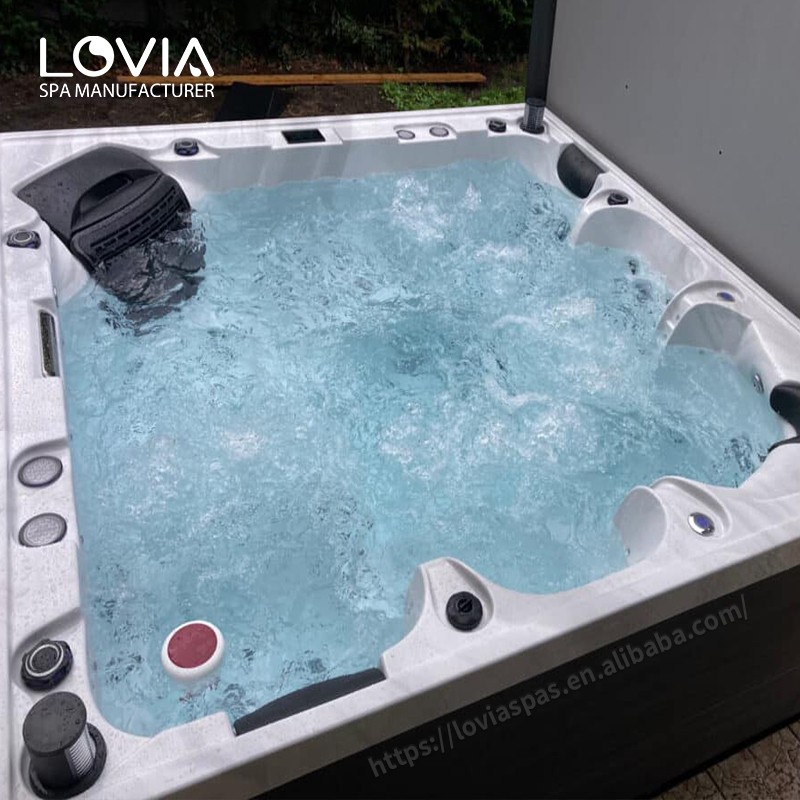
Risk of microbial growth
Although the water in the spa jacuzzi bathtub has been chemically treated, the problem of microbial growth still exists. Especially in public places, there are many users of the spa jacuzzi bathtub, and bacteria and viruses carried by the human body are likely to spread in the water. Although disinfectants can reduce the number of microorganisms, some tenacious bacteria and fungi may still survive and even accelerate their reproduction in a high water temperature environment.
1. Pseudomonas infection:
Pseudomonas is a common aquatic bacteria that particularly likes to grow in warm and humid environments. If the water quality is not properly managed, Pseudomonas may breed in the spa jacuzzi bathtub and cause skin infections, especially after long soaking, the pores are open, and bacteria are more likely to invade the skin, causing symptoms such as erythema and itching. Showering in time can effectively wash away bacteria on the surface of the skin and reduce the risk of infection.
2. Possibility of fungal infection:
A common problem in public spa facilities is the growth of mold and yeast, especially when spa facilities are not properly maintained or disinfected. These microorganisms will attach to the surface of the bathtub, handrails or filter. Prolonged contact with these microorganisms may cause fungal infections, such as athlete's foot or ringworm. If you do not shower after taking a spa bath, the fungal spores on the skin may continue to multiply, increasing the chance of infection.
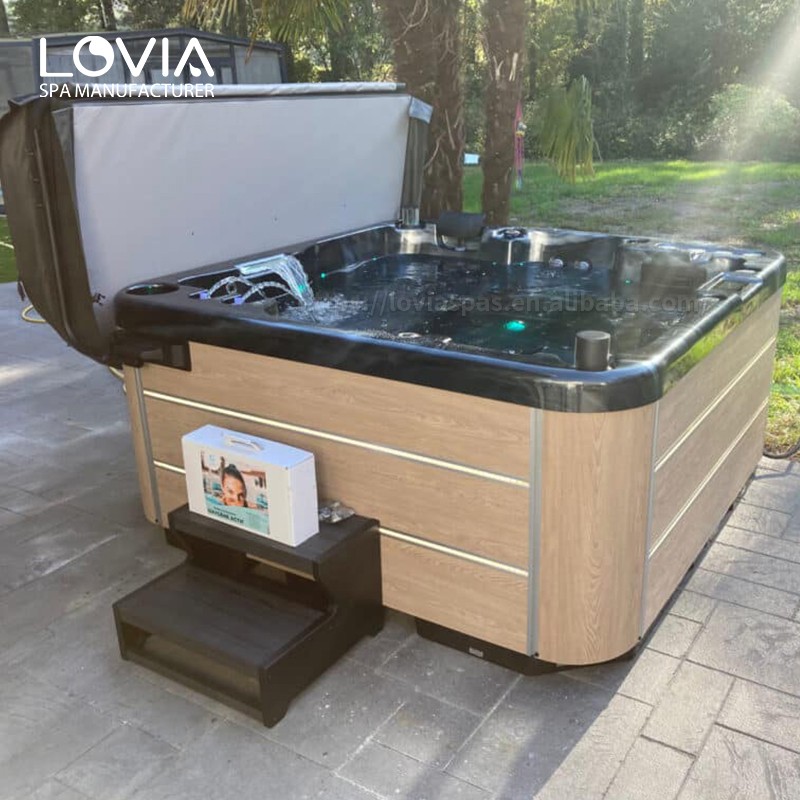
Effects of warm water and humidity on the skin
When soaking in a spa jacuzzi bathtub for a long time, the human skin will change due to high temperature and humidity. Warm water opens the pores and promotes blood circulation, but it also accelerates the loss of oil and moisture on the surface of the skin. After soaking in a spa jacuzzi bathtub, the surface of the skin may become dry and even peel. Therefore, timely showering helps to wash away minerals, chemical residues and microorganisms on the skin, and restore the skin's moisture balance by using moisturizing products.
1. Pore blockage:
When the skin pores open in hot water, various minerals, oils and chemicals may enter the pores. Especially if you don't take a shower in time, these substances will remain on the skin after taking a spa jacuzzi bathtub, which may cause pore blockage and cause acne or blackheads. Therefore, showering can not only clean the surface of the skin, but also remove substances that clog the pores through appropriate detergents to prevent skin problems.
2. The importance of moisturizing:
In a high temperature environment, the natural barrier function of the skin will be affected, especially after taking a spa jacuzzi bathtub, the moisture of the skin is more likely to be lost. Applying moisturizer in time after showering can help lock the moisture in the skin, restore its barrier function, and prevent discomfort symptoms such as dry skin and peeling.
Regulation of the cardiovascular system
The high temperature of the spa jacuzzi bathtub not only affects the skin, but also has an effect on the human cardiovascular system. When soaking in high-temperature water, the body's blood circulation will speed up, blood vessels will dilate, and heart rate will rise. These changes may bring additional pressure to some people, especially those with cardiovascular diseases. Showering, especially with milder water temperatures, helps to gradually lower body temperature and help the body smoothly transition to a normal state, avoiding discomfort caused by large temperature changes.
After soaking in a hot environment for a long time, leaving the spa jacuzzi bathtub directly may cause a sudden drop in body temperature, especially when the ambient temperature is low. This rapid temperature change may cause symptoms such as dizziness, fatigue, and even collapse. Showering can not only help wash away sweat and chemicals on the body, but also gradually regulate body temperature by controlling the water temperature, reducing the body's violent reaction to the external environment.
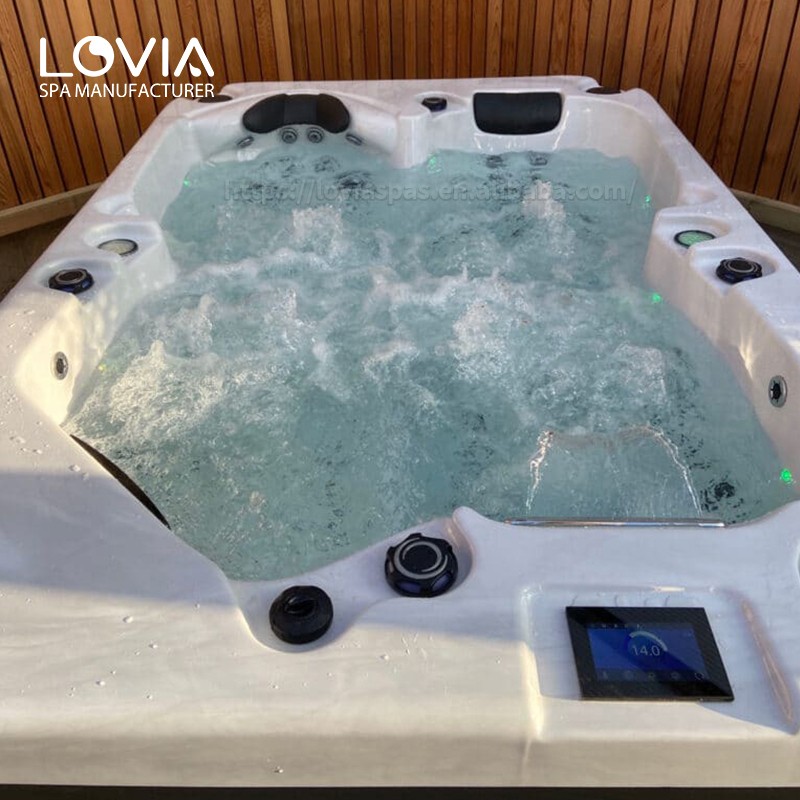
The right way to shower after soaking in a spa jacuzzi bathtub
After soaking in a spa jacuzzi bathtub, showering is not just a simple flushing, but also should pay attention to the method and steps. Here are a few key points:
1. Water temperature adjustment:
The water temperature of the shower should not be too cold or too hot. It is recommended to use warm water to avoid unnecessary stimulation to the skin and cardiovascular system. The moderate water temperature can help the pores gradually close and promote blood circulation to return to normal.
2. Use a mild cleanser:
Since the skin has already been exposed to high temperatures and chemicals in the spa jacuzzi bathtub, it is important to choose a mild, fragrance-free or low-irritation cleanser. Avoid using strong exfoliating products or shower gels with irritating ingredients to reduce the additional burden on the skin. Moderate cleansing can effectively remove residual chemicals and dirt while maintaining the skin's natural protective layer.
3. Rinse thoroughly:
When showering, make sure that every part of the body is thoroughly rinsed, especially areas that are prone to residual minerals and chemicals, such as the back and skin folds. Adequate rinsing can help remove residual dirt and chemicals on the skin surface and reduce the incidence of skin problems.
4. Gently dry:
After showering, gently pat your body dry with a soft towel and avoid rubbing hard. Rough rubbing may irritate the skin, especially for skin that has been affected by hot water. After patting dry, you can apply a moderate amount of moisturizer to restore the skin's moisture and barrier function.
5. Wear clean clothes in time:
After showering, you should put on clean clothes immediately to avoid direct contact with dirty or moist environments. This can reduce skin irritation and help keep the skin dry and comfortable.
As one of the most recognized spa brands in the world, Lovia Spa delivers value, quality, and customization. We specialize in OEM/ODM outdoor spa jacuzzi manufacturing and provide cost-effective solutions for importers and retailers. With a robust supply chain and excellent after-sales support, our company ensures competitive pricing and long-term cooperation opportunities. Get in touch for factory quotes and volume discounts.


